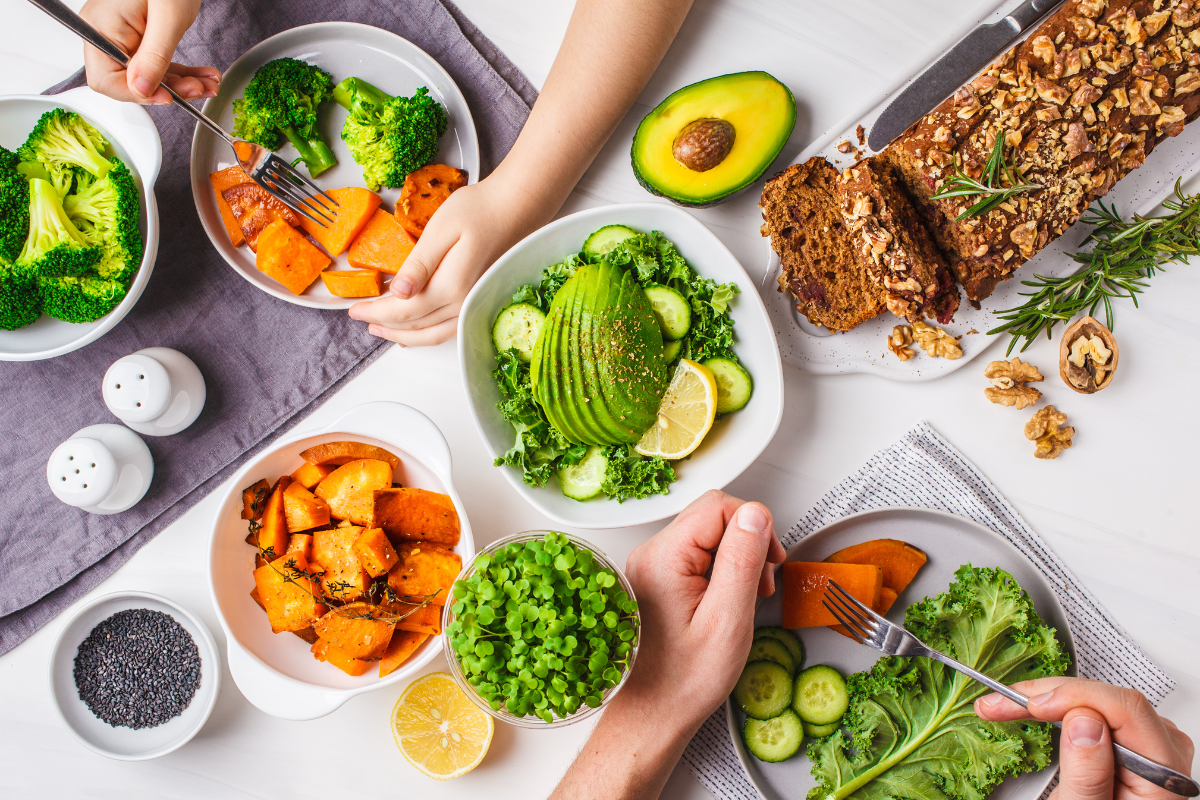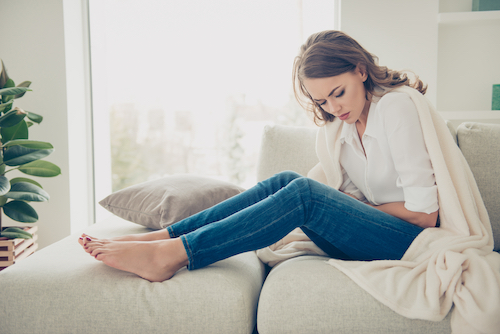
Do you struggle from bad period pain? You shouldn’t have to! Periods are such a common part of life that we often dismiss bad period pain as part and parcel of being a woman but that doesn’t need to be the case.
When is Period Pain Normal?
Period pain is indeed a normal part of having a period, it is caused when the walls of the womb contract mildly. Although your womb contracts regularly throughout the month, during your period it begins to contract more intensely in order to encourage the lining of your womb to shed as part of your monthly cycle.
When your womb contracts it momentarily cuts oxygen supply to the blood vessels in the lining of your womb, which in turn release chemicals that trigger pain. This is a totally normal and healthy part of having a period and shouldn’t interfere with your day to day life and can be treated with ibuprofen. However, when period pain becomes unbearable it is time to seek a medical opinion
How To Recognise Severe Period Pain
Women who suffer from severe period pain often find that it impacts dramatically on their daily lives, causing them to miss work, school or social events. Sever period pain can be recognised as a stabbing, shooting, searing, pulsing pain which often lasts longer than the one or two days expected with period pain.
Severe period pain can often induce other physical reactions such as vomiting or fainting and can be accompanied by other symptoms such as severe fatigue. It can’t be quelled using regular pain relief methods and is usually caused by an underlying condition such as endometriosis or PCOS.
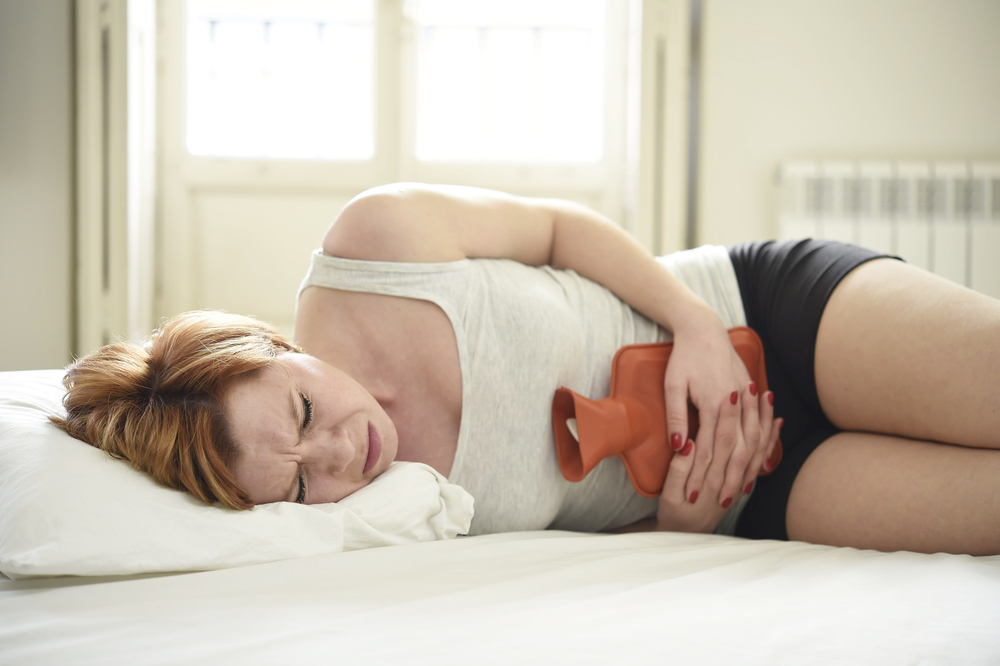
How To Treat Normal Period Pain
Whilst period pain is part of having a period, if your pain falls within the ‘normal’ parameters mentioned above there are ways you can help manage and even get rid of the pain completely. In addition to taking pain relief, these methods can make all the difference when it comes to period pain!
Heat
For generations mothers have been telling their daughters that putting something warm over your cramps can help alleviate them, a fact that was recently backed up by research from University College London. Their research has shown that ‘the heat doesn’t just provide comfort and have a placebo effect – it actually deactivates the pain at a molecular level in much the same way as pharmaceutical painkillers work’.
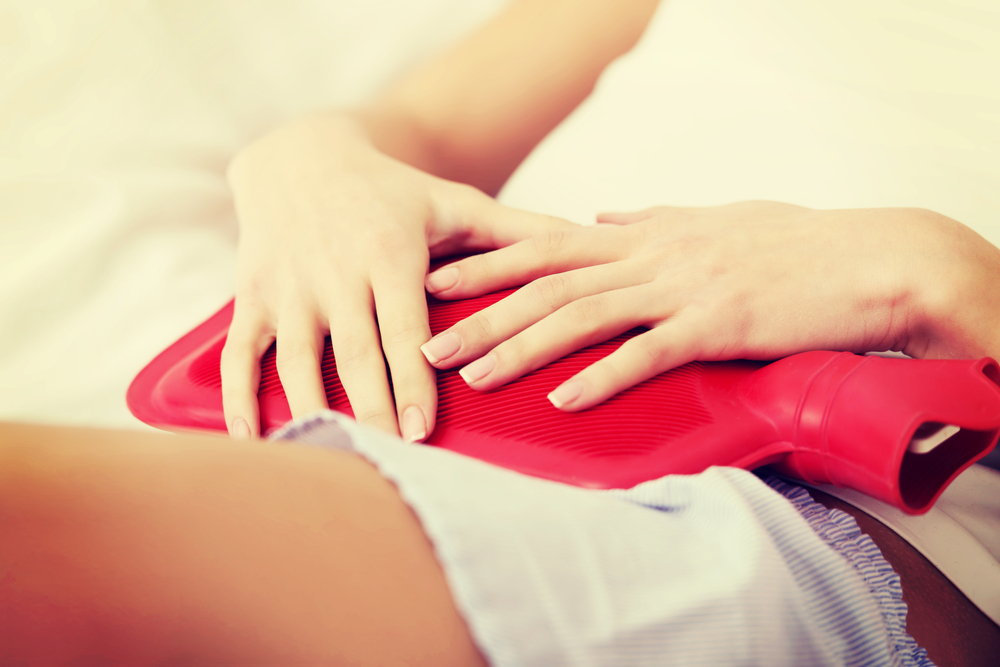
Magnesium
Magnesium is generally accepted as an effective way to help prevent and treat period pain. Magnesium has been shown to reduce the production of prostaglandin, which is released by your body when you have cramps and increases the intensity of subsequent cramping. Reducing prostaglandin also helps to reduce inflammation in the body which has a knock on effect for period pain too. Increasing your dietary magnesium in the run up to and during your period can be effective, however it is important not to have too much magnesium as this can cause digestive problems, low blood pressure and diarrhoea amongst other things. Foods such as leafy greens, nuts and seeds are all good sources of dietary magnesium.
Zinc
Similar to magnesium, zinc is important for inhibiting the metabolism of prostaglandins, and one study in America has sown that 1-3 30mg doses given daily for one to four days prior to the onset of your period prevented all menstrual cramping. Zinc is also a excellent anti-oxidant, and helps increase blood circulation which helps carry oxygen to the red blood cells in your womb, thus helping reduce pain.
Exercise
Although it might seem counterintuitive, exercise can be excellent for reducing period pain. Gentle, low impact exercises are best, for instance swimming, walking or yoga, and if you can’t bear the idea of long stretches of exercise during your period, break it down into three ten minute sessions throughout the day. Exercise increases blood flow and produces endorphins, both of which help reduce pain, not to mention that exercise also produces serotonin which will help boost your mood and combat PMS symptoms.

Could It Be Endometriosis?
Endometriosis is a condition that affects one in ten women, making it much more common than many people realise. One symptom of endometriosis is extremely painful periods, as well as chronic pain in other areas such as the lower back, pelvis or abdomen. It also causes very heavy periods and can have other side effects such as infertility and pain during intercourse. If you suffer from very bad period pain or any of these other symptoms, you should seek a medical opinion as soon as possible in order to discover whether your severe period pain is caused by endometriosis.
Once a doctor has confirmed this diagnosis with testing, you can then start an appropriate course of treatment. Bio-Identical Hormone Replacement Therapy could be a fantastic option in this case, and will help combat your severe period pain by treating the underlying endometriosis.
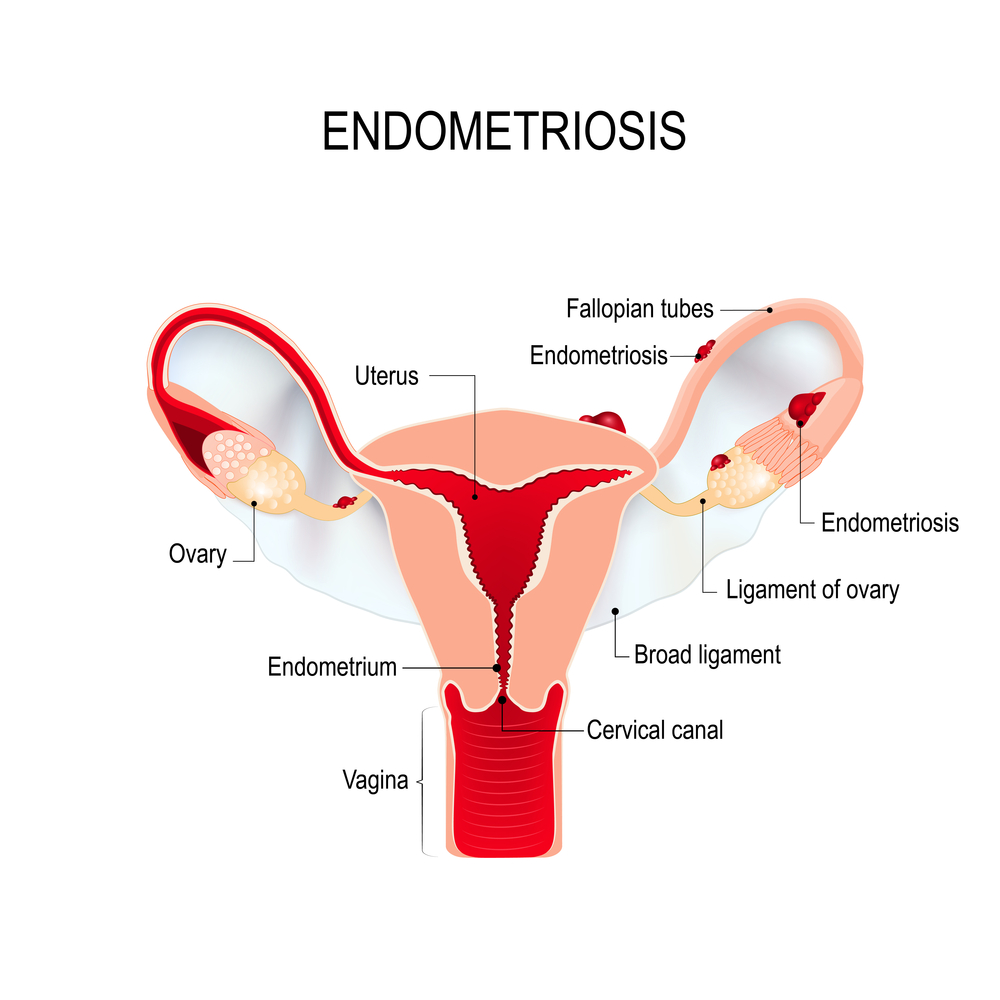
What Else Causes Severe Period Pain?
Endometriosis is a relatively well known cause of severe period pain, however there are other medical conditions which can cause it too. These include:
Pelvic Inflammatory Disease
PID is an infection of the female upper genital tract, which includes the womb, fallopian tubes and ovaries. It is a relatively common condition and mostly affects women between the ages of 15 and 24 who are sexually active. Symptoms include:
- pain around the pelvis or lower abdomen (tummy)
- discomfort or pain during sex that’s felt deep inside the pelvis
- pain during urination
- bleeding between periods and after sex
- heavy periods
- painful periods
- unusual vaginal discharge, especially if it’s yellow or green
In severe cases women can also experience:
- severe lower abdominal pain
- a high temperature (fever)
- nausea and vomiting
If you experience these symptoms, then it is crucial that you make an appointment with your GP or local sexual health clinic in order to receive a diagnosis and treatment.
Fibroids
Fibroids are non-cancerous growths, made up of muscle and fibrous tissue, that grow in or around your uterus. These vary in size and you will sometimes hear them referred to as uterine myomas or leiomyomas. Although many women aren’t aware that they have fibroids, because they don’t exhibit any of the symptoms associated with the condition, around one in three women with fibroids will experience the following symptoms:
- heavy periods
- severe period pain
- abdominal and lower back pain
- frequent urination
- constipation
- pain during sex
If you experience any of these symptoms, then please do seek medical advice as soon as possible.
Adenomyosis
Adenomyosis is one of the lesser talked about causes of sever period pain but is also very common. It is a condition that causes endometrium to break through the muscle wall of the uterus, causing increased period pain, long and heavy periods, bloating and lower abdominal pressure.
As with any suspected medical condition, if you suspect you may be suffering from adenomyosis then please make an appointment with your GP ASAP.



